Jonty Colman
BBC Sport journalist
The World Cup of Darts gets under way on Thursday and teenage sensation Luke Littler will be making his debut in the competition.
In the international doubles tournament in Leverkusen, Germany, Littler and world number one Luke Humphries will pair up to represent England.
England are the defending champions, with Humphries winning it alongside former world champion Michael Smith in 2024.
The two players in each team will throw three darts each and alternate throughout the match.
Each team consists of the two best-ranked players from each nation based on the Professional Darts Corporation's Order of Merit on 7 May.
The four top-ranked nations - England, Wales, Scotland and Northern Ireland - have received a bye into the second round, which will consist of 16 nations.
Dutch world number three Michael van Gerwen opted not to play in the competition, effectively costing the Netherlands a spot in the second round.
The other 12 spots will be determined via the results of the group stage, where 36 teams will compete.
Those 36 nations have been split into 12 round-robin groups of three, with the group winners advancing to the second round.
The top 16 nations were seeded, with the nations ranked between five and 12 separated in the groups to face two unseeded nations in the group stage.
Rankings were determined by the joint-rankings of players.
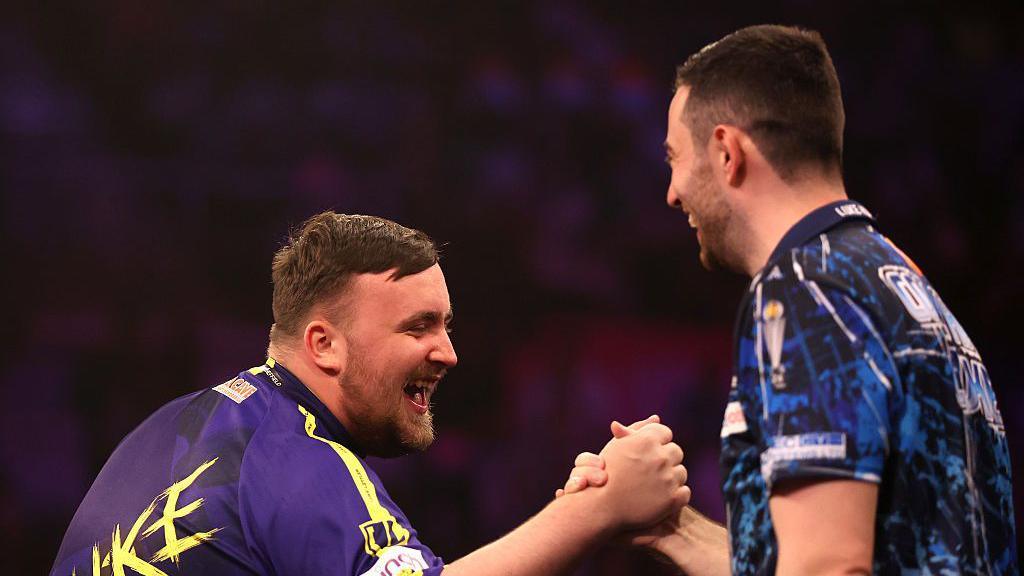 Image source, Getty Images
Image source, Getty Images
Luke Littler and Luke Humphries are big favourites to win the World Cup of Darts for England
Which players and nations are taking part?
A total of 80 players from 40 nations are taking part.
The numbers next to each nation indicate the seeding.
Through to the second round
1. England (Luke Humphries and Luke Littler)
2. Wales (Jonny Clayton and Gerwyn Price)
3. Scotland (Gary Anderson and Peter Wright)
4. Northern Ireland (Josh Rock and Daryl Gurney)
Group stage
Group A
5. Netherlands (Danny Noppert and Gian van Veen)
Italy (Michele Turetta and Massimo Dalla Rosa)
Hungary (Gyorgy Jehirszki and Gergely Lakatos)
Group B
6. Belgium (Mike de Decker and Dimitri van den Bergh)
Latvia (Madars Razma and Valters Melderis)
Philippines (Lourence Ilagan and Paolo Nebrida)
Group C
7. Germany (Martin Schindler and Ricardo Pietreczko)
Portugal (Jose de Sousa and Bruno Nascimento)
Singapore (Paul Lim and Phuay Wei Tan)
Group D
8. Republic of Ireland (William O'Connor and Keane Barry)
Gibraltar (Craig Galliano and Justin Hewitt)
China (Xiaochen Zong and Lihao Wen)
Group E
9. Poland (Krzysztof Ratajski and Radek Szaganski)
South Africa (Cameron Carolissen and Devon Petersen)
Norway (Cor Dekker and Kent Joran Sivertsen)
Group F
10. Canada (Matt Campbell and Jim Long)
Malaysia (Tengku Shah and Tan Jenn Ming)
Denmark (Denjamin Drue Reus and Andreas Hyllgaardhus)
Group G
11. Sweden (Jeffrey de Graaf and Oskar Lukasiak)
Lithuania (Darius Labanauskas and Mindaugas Barauskas)
France (Thibault Tricole and Jacques Labre)
Group H
12. Austria (Mensur Suljovic and Rusty-Jake Rodriguez)
Spain (Daniel Zapata and Ricardo Fernandez)
Australia (Damon Heta and Simon Whitlock)
Group I
13. United States (Danny Lauby and Jules van Dongen)
Hong Kong (Man Lok Leung and Lok Yin Lee)
Bahrain (Sadeq Mohamed and Hasan Bucheeri)
Group J
14. Czech Republic (Karel Sedlacek and Petr Krivka)
India (Nitin Kumar and Mohan Goel)
Chinese Taipei (Teng Lieh Pupo and An-Sheng Lu)
Group K
15. Croatia (Pero Ljubic and Boris Krcmar)
Japan (Ryusei Azemoto and Tomoya Goto)
Switzerland (Stefan Bellmont and Alex Fehlmann)
Group L
16. Finland (Teemu Harju and Marko Kantele)
New Zealand (Haupai Puha and Mark Cleaver)
Argentina (Jesus Salate and Victor Guillin)
What is the format of the World Cup of Darts?
All rounds are played as one-off doubles matches.
During the group stage all matches are played in a best-of-seven-legs format.
In the second round, quarter-finals and semi-finals, matches are best of 15 legs.
In the final the number of legs is again increased to the best-of-19.
When are the matches?
The 36 group stage matches will be played on Thursday and Friday.
Thursday's session starts at 18:00 BST. Friday's afternoon session starts at 11:00 and the evening session at 18:00.
All 12 second-round matches will be played on Saturday.
The afternoon session starts at 12:00 and the evening session at 18:00.
The quarter-finals, semi-finals and final will take place on Sunday.
The quarter-finals will start at 12:00, with the semi-finals and final from 18:00.
World Cup of Darts prize money
A total prize pot of £450,000 is available.
The winning team will earn a combined £80,000, with the runners-up taking £50,000.
All teams in the group stage are guaranteed at least £4,000, while teams in the knockout rounds will earn a minimum of £9,000.
Prize money (per team)
Winners: £80,000
Runners-up: £50,000
Losing semi-finalists: £30,000
Losing quarter-finalists: £20,000
Losing second-round teams: £9,000
Second-place finish in group: £5,000
Third-place finish in group: £4,000
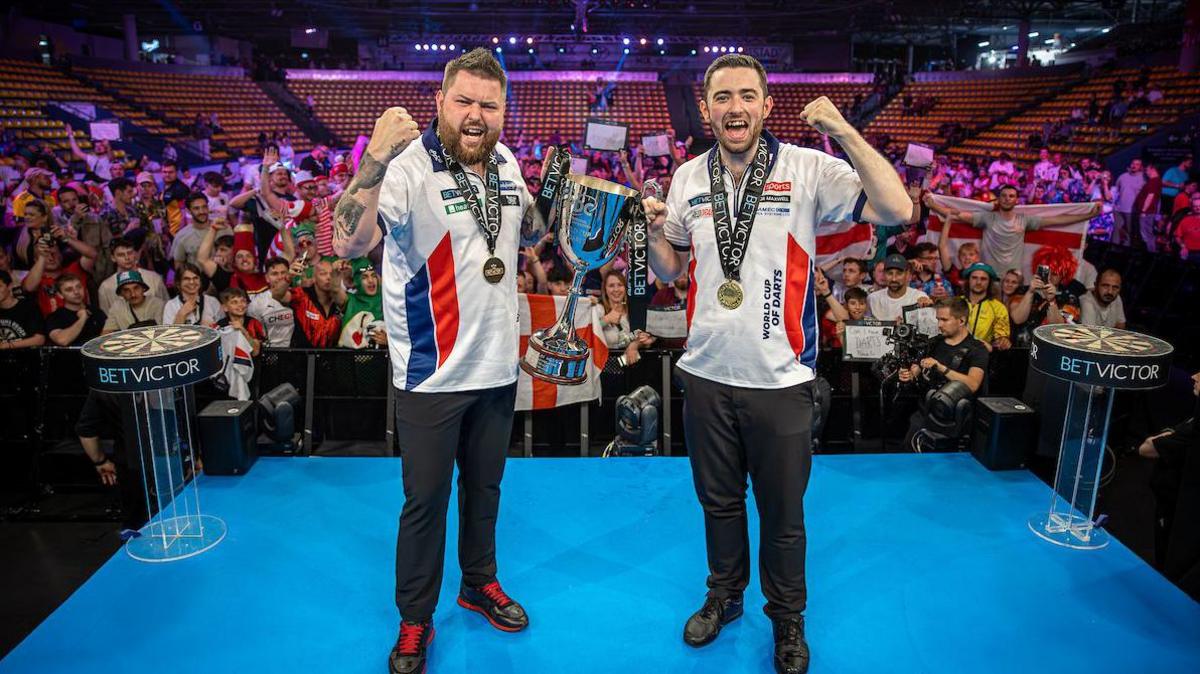 Image source, Getty Images
Image source, Getty Images
Michael Smith and Luke Humphries were the first England team since 2016 to win the World Cup of Darts
World Cup of Darts winners
The first edition of the World Cup of Darts was in 2010 and it became an annual competition from 2012.
Five different nations have won the competition and there have been eight different winning pairs.
Phil Taylor and Adrian Lewis won it four times for England, and Van Gerwen and Raymond van Barneveld three times for the Netherlands.
Of the teams competing at the 2025 World Cup, Scotland's Anderson and Wright, Wales' Clayton and Price and Australia's Heta and Whitlock have won the World Cup.
2024: England (Luke Humphries and Michael Smith)
2023: Wales (Gerwyn Price and Jonny Clayton)
2022: Australia (Damon Heta and Simon Whitlock)
2021: Scotland (Peter Wright and John Henderson)
2020: Wales (Gerwyn Price and Jonny Clayton)
2019: Scotland (Gary Anderson and Peter Wright)
2018: Netherlands (Michael van Gerwen and Raymond van Barneveld)
2017: Netherlands (Michael van Gerwen and Raymond van Barneveld)
2016: England (Phil Taylor and Adrian Lewis)
2015: England (Phil Taylor and Adrian Lewis)
2014: Netherlands (Michael van Gerwen and Raymond van Barneveld)
2013: England (Phil Taylor and Adrian Lewis)
2012: England (Phil Taylor and Adrian Lewis)
2010: Netherlands (Raymond van Barneveld and Co Stompe)
What is Ask Me Anything?
This article is the latest from BBC Sport's Ask Me Anything team.
Ask Me Anything is a service dedicated to answering your questions.
We want to reward your time by telling you things you do not know and reminding you of things you do.
The team will find out everything you need to know and be able to call upon a network of contacts, including our experts and pundits.
We will be answering your questions from the heart of the BBC Sport newsroom, and going behind the scenes at some of the world's biggest sporting events.
Our coverage will span the BBC Sport website, app, social media and YouTube accounts, plus BBC TV and radio.

 23 hours ago
2
23 hours ago
2
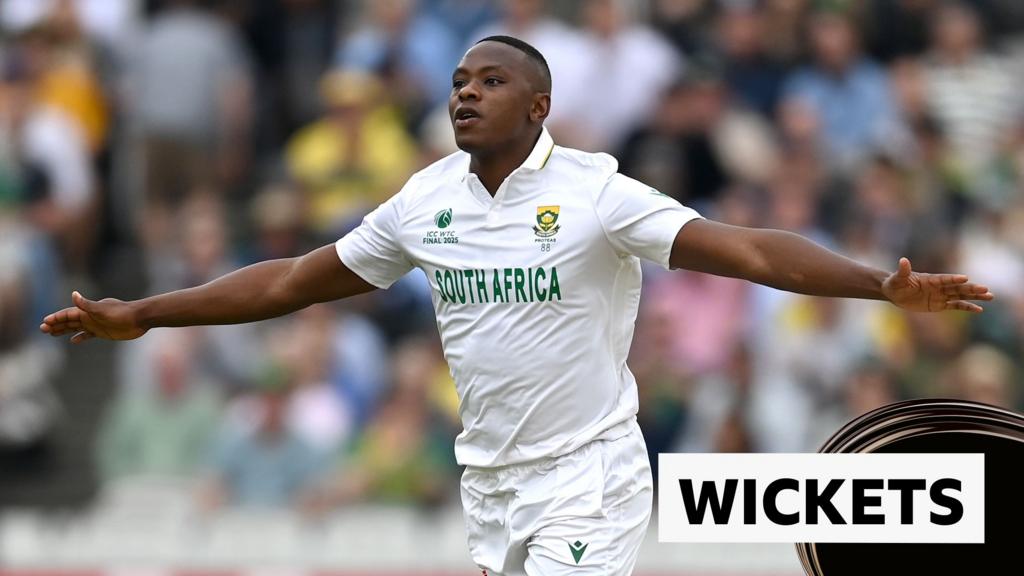
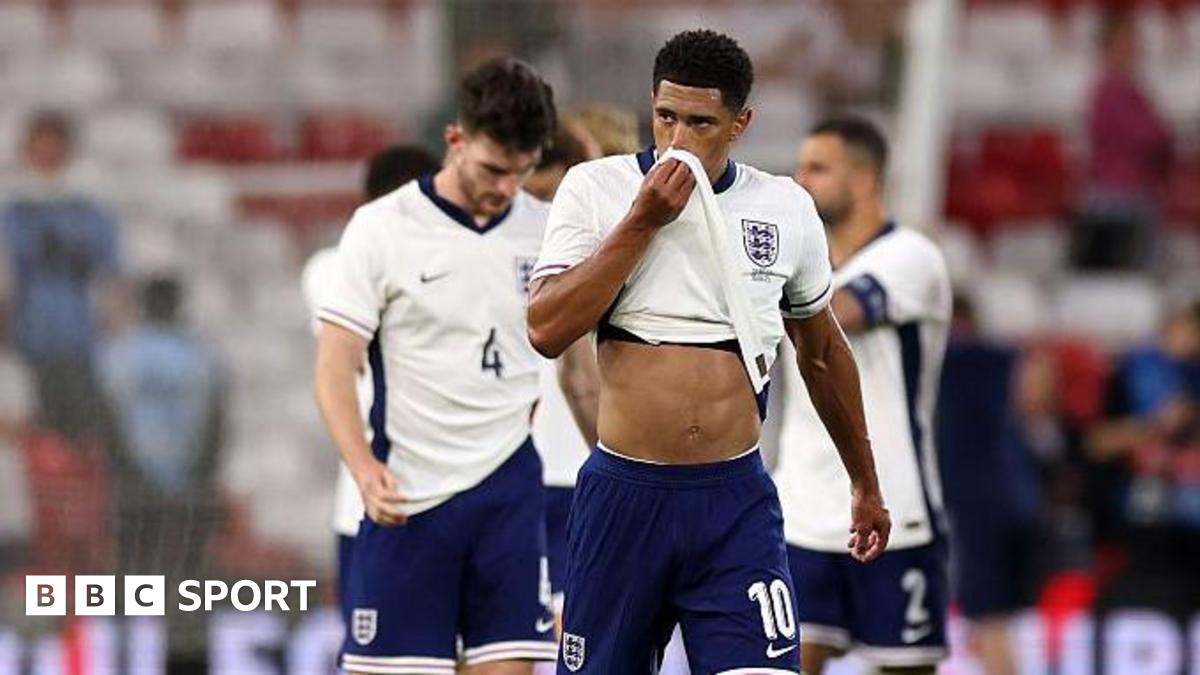
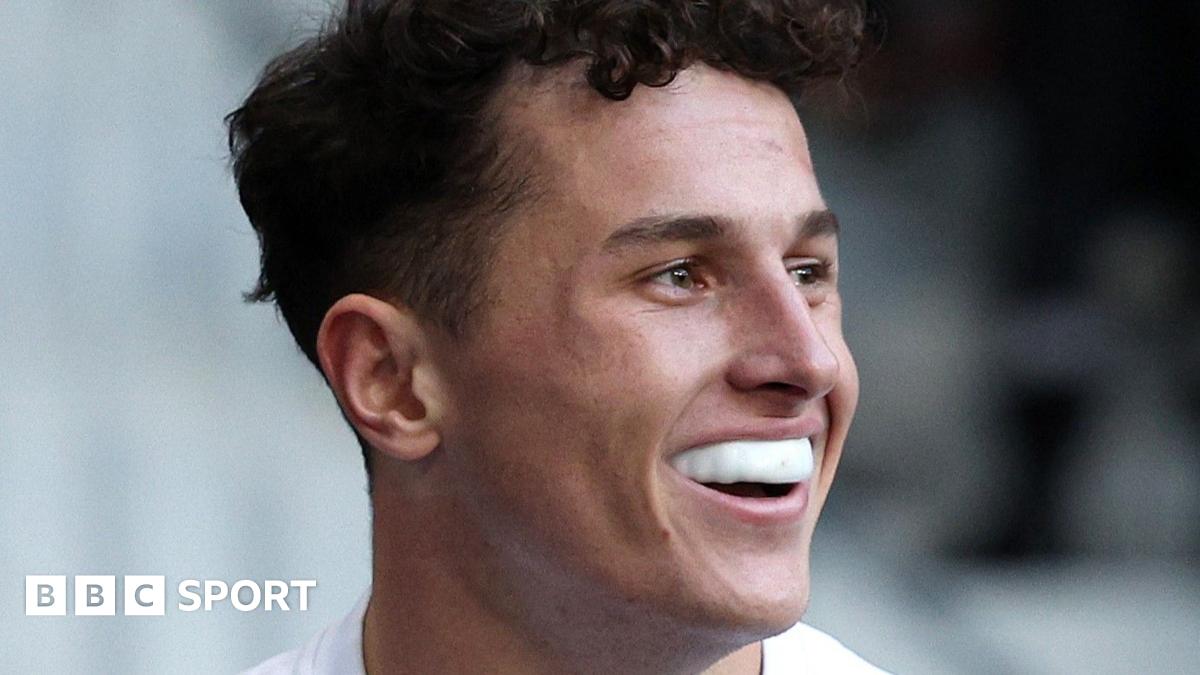



 English (US) ·
English (US) ·